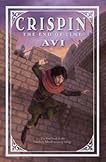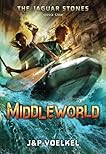Penguin's decade-defining books
t seems like no time at all since Penguin was celebrating its 70th birthday, but the publisher has now made it to 75 years of age and is about to roll out its latest promotional celebration. This time around, it's decided to select the books it published which "helped shape modern Britain", picking five novels from each of the 50s, 60s, 70s and 80s and publishing them in April with new introductions from the likes of Ali Smith and Jeremy Paxman.
"When they were published, some were bestsellers, some were considered scandalous, and others were simply misunderstood," Penguin says. "All represent their time and helped define their generation, while today each is considered a landmark work of storytelling."
Now, this is a tricky business. Not only is Penguin limited to its own titles for its choice, but its selectors will have wanted to steer clear of any controversy: last time round, on its 70th anniversary, the publisher received some flak for only choosing two non-white authors for the 70 Pocket Penguins it released to mark the occasion. I think the selectors have done ok, considering – there's lots of books I've read and loved on the list (hurrah for Susan Hill, whose I'm the King of the Castle absolutely terrified me, Angela Carter, who surely anyone sensible can't get enough of, and Barry Hines's unforgettable Kes), and there's also lots there which I've been intending to read for ages. A Clockwork Orange works well for the 60s, I think, and From Russia with Love fits with the 50s.
That said, though, they probably set themselves an impossible task – is it really feasible to choose the books which defined a decade? I found it tough enough to choose my favourite book of the year in December, and I'd be hard pressed to steer away from personal preference in order to choose a defining title of the year, let alone the decade. Should it give the flavour of the period? Be the most high-profile title? The best?
The choice of decades reflects this dilemma to some extent. Penguin said that the 90s and 00s were excluded for being "a little too recent; the books that defined those decades hadn't quite been settled on." They also decided not to include the 1940s because, "being Penguin's first full decade the list was relatively narrow, and the Penguin Modern Classics list has managed to represent that decade quite fully already".
Still, good on Penguin for trying, I say, and for reminding us of a brilliant backlist rather than just focusing on the new. I'd love to hear about other decade-defining titles out there, Penguin or otherwise, which you think were missed – and also what you make of Penguin's selections.
The list:
1950s
Scenes from Provincial Life by William Cooper
Lucky Jim by Kingsley Amis
From Russia with Love by Ian Fleming
Billy Liar by Keith Waterhouse
The Chrysalids by John Wyndham
1960s
A Clockwork Orange by Anthony Burgess
The Millstone by Margaret Drabble
The British Museum is Falling Down by David Lodge
A Kestrel for a Knave by Barry Hines
Another Part of the Wood by Beryl Bainbridge
1970s
I'm the King of the Castle by Susan Hill
Don't Look Now by Daphne du Maurier
The Infernal Desire Machines of Doctor Hoffman by Angela Carter
The Children of Dynmouth by William Trevor
Treasures of Time by Penelope Lively
1980s
A Month in the Country by JL Carr
An Ice-Cream War by William Boyd
Hawksmoor by Peter Ackroyd
Paradise Postponed by John Mortimer
Latecomers by Anita Brookner































No comments:
Post a Comment